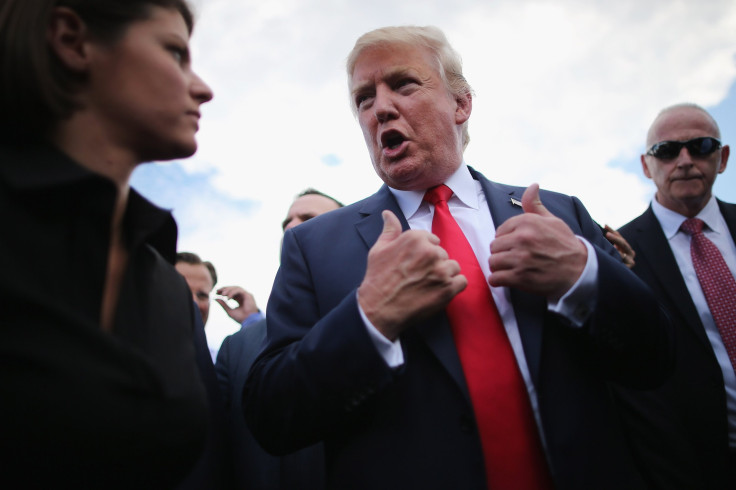Trump Recertifies Iran Nuclear Deal: Ways Iran Is Working Against US Interest

President Donald Trump has agreed to certify Iran compliant with the 2015 Nuclear deal for the second time since he took office, but emphasized tough enforcement of the deal along with new sanctions on Iran for its support of terrorism and other alleged activities.
The president also told his national security team he would not keep certifying the deal indefinitely, reports said.
Trump had criticized the deal — negotiated under his predecessor Barack Obama — last year during his campaign and called it the "worst deal ever" and vowed to "rip up" the agreement if elected.
However, last week, his advisers suggested they needed more time to work with allies and Congress. Even the first time when Trump objected to certify Iran’s compliance, he was told that his team would get back with a new strategy to confront Tehran, according to an official who described internal discussions on the condition of anonymity, the New York Times reported.
Read: Two Years Later, Where Does The Iran Deal Stand?
The U.S. needs to certify to Congress every 90 days that Iran is complying with the deal, and the last time it did so was in April.
Under the 2015 nuclear deal, Iran agreed to curtail its nuclear programme in exchange for lifting of sanctions that had paralyzed its economy. That time, Obama had referred to the deal as a crucial move towards detente with Iran and regional peace, AlJazeera reported.
However, Trump has made it clear he considers Iran a threat, a view endorsed by Israel, Saudi Arabia and other Middle East allies of the U.S. It has been argued that the Joint Comprehensive Plan of Action (JCPOA) signed in July 2015 works against U.S. interests. Under the deal, multilateral United Nations sanctions against Iran have been largely removed, and it can purchase arms on the international market more easily, as was evidenced when it purchased Russia's sophisticated S-300 air defense system last year, according to website the National Interest.
U.S. Secretary of State Rex Tillerson has also criticized the deal, saying "it remains one of the most dangerous threats to U.S. interests and to regional stability" and "is unequivocally in default of the spirit" of the agreement, officials on condition of anonymity said, according to the Times.
The U.S. has been at loggerheads with Iran for supporting the government of Bashar al-Assad in Syria and creating unrest in Yemen and elsewhere in the region.
Read: White House Puts Iran 'On Notice' For Ballistic Missile Launch, Attack On Saudi Ship
Both Russia and Iran support the Assad regime through financial aid, trade agreements, air support, military guidance and diplomatic assistance, CNBC reported quoting Faysal Itani, resident senior fellow at the Atlantic Council's Rafik Hariri Center for the Middle East.
"Think of Iran as the ground force responsible for Assad's survival," Itani said. He added: "I think both are essential to the war effort, but that Iran is the party more deeply invested and with far more influence on the ground, including over Assad."
Apart from nuclear-related sanctions on Iran, the U.S. argues that it retains the right to impose non-nuclear related sanctions on Iran as well despite the 2015 agreement. However, the U.S. feels that such moves could lead Tehran to allege that Washington is violating the spirit of the 2015 nuclear deal, Politico reported.
© Copyright IBTimes 2024. All rights reserved.






















